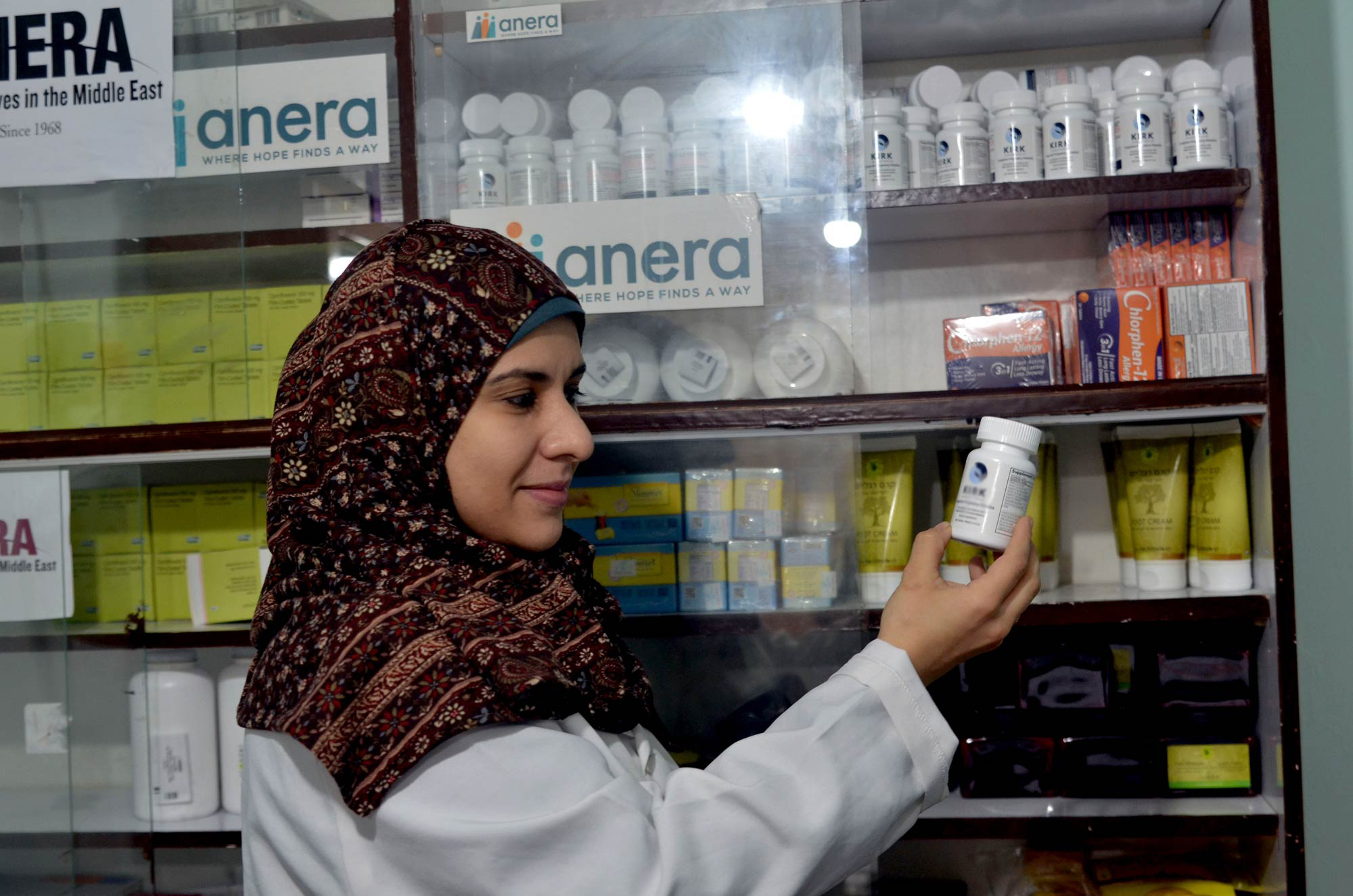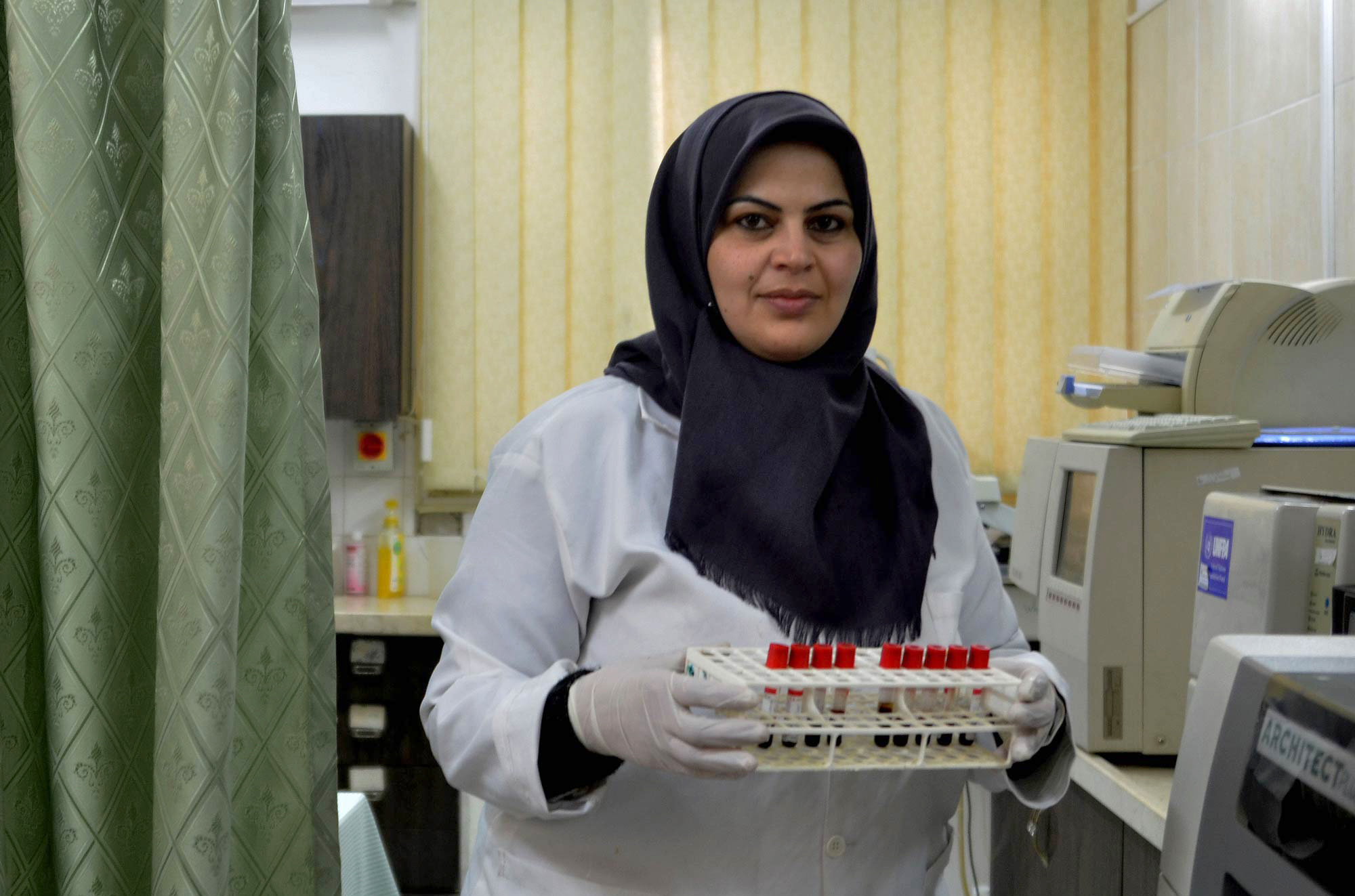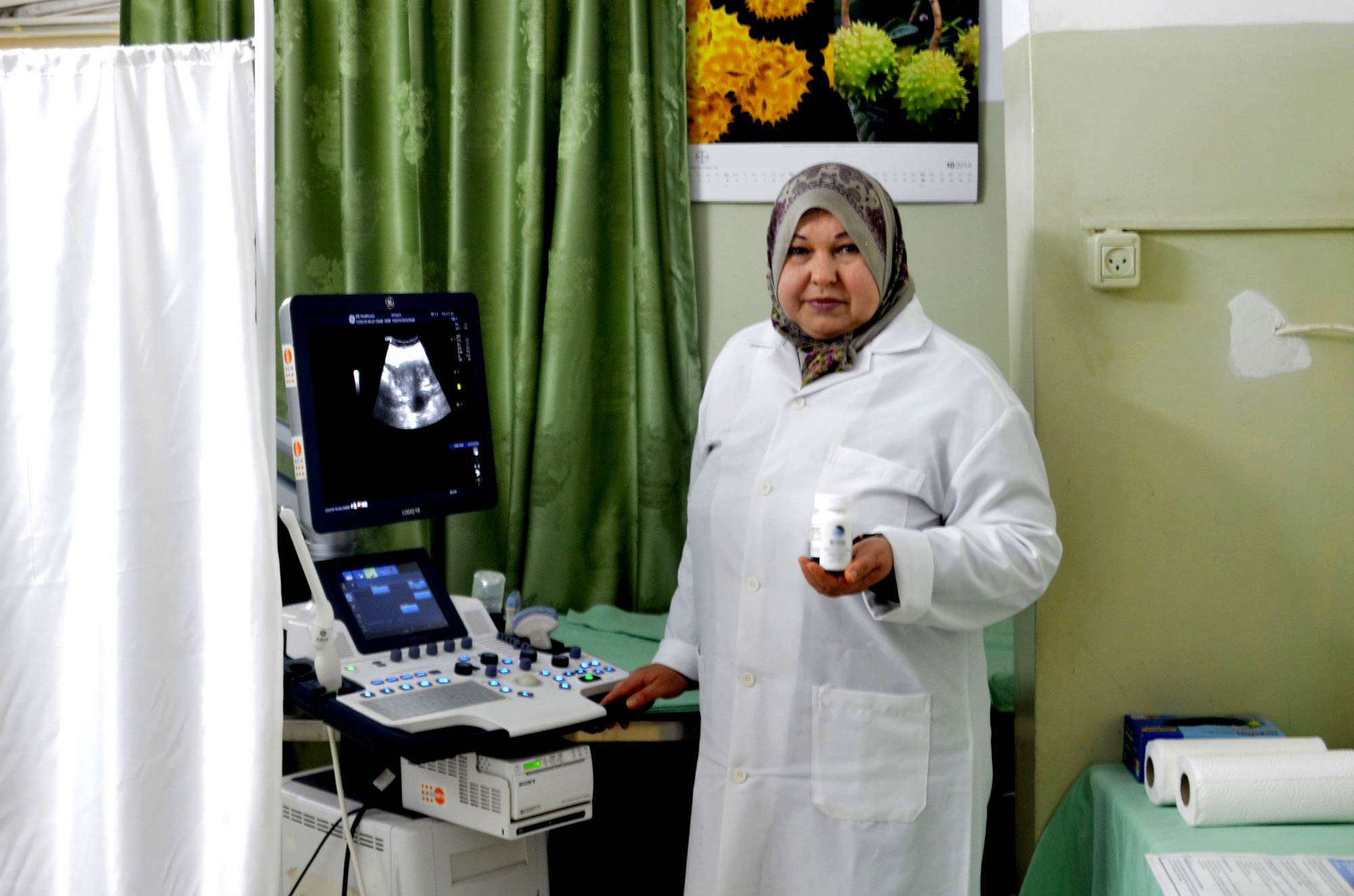HEALTH
Al Bureij Women's Health Center - Supporting Women in Gaza
Mar, 2019
“Having access to healthcare has also affected how [our patients] look at themselves.” -- Marwa, pharmacist
Al Bureij Women’s Health Center is a refuge for women in central Gaza. Since 1995, the center has offered holistic services for women. Despite its modest size and location inside the Bureij refugee camp, the charitable medical center opens its doors to patients from all around Deir Al Balah region, providing healthcare services to the most vulnerable and underserved in surrounding communities.
Feryal Thabit, a health activist who runs the facility, sees the health problems afflicting her community every day. “There are incredibly high rates of health issues, particularly mothers with nutritional deficiencies. It is a reflection of the poverty and high rates of unemployment,” she said. “Poor families don’t have the money to get regular medical check-ups. There are severe shortages, and nutritional deficiencies are common in women across all age groups.”
Marwa Bilbisi, a pharmacist at the center, says, “The gratitude from patients who receive medication free of charge is very touching.” She adds that, “Having access to healthcare has also affected how they look at themselves.”
Realities outside the clinic reinforce the important role the center plays. “It’s impossible to describe the economic situation,” Marwa says. “Hundreds of pregnant women visit our center for regular check-ups. Their daily food isn’t enough to nourish them and their growing babies.”


Malnutrition in Gaza is tied to poverty, as high prices and poor dietary habits restrict access to healthy foods. The impact of a poor diet on a pregnant woman can be extremely detrimental.
“More than 50 percent of women we test suffer from severe malnourishment, as shown in their blood count results,” says Inaam, a lab technician at the center. Today, she has just completed complete blood count, or CBC, tests for Hannan, a patient at the center in her second trimester of pregnancy.
Inaam says that “[Hannan’s] blood count was bad, and her body was very weak. Her diet is mainly bread and rice. No fruits or vegetables.” Hannan, a mother of three, visited the center because her hair had started falling out, which is a symptom of nutritional deficiencies.


Recently, the doctors at the center were delighted to receive a generous donation of multivitamins from Direct Relief. “If patients were to purchase similar supplements, it would cost each patient over 50 NIS (approximately $14) for a bottle - a heavy financial burden here, especially for expecting mothers,” Inaam notes.
Talina Mahdi, a gynecologist at the clinic, says that anemia is common in women she treats. She attributes the problem to vitamin and mineral deficiencies in their diets.


“It’s crucial to get prenatal vitamin supplements to help bridge any nutritional gaps in the mother's diet. Folic acid, iron, and calcium are especially important.” Dr. Mahdi also advises her patients on how to improve their eating habits, at least as much as their budgets allow.
Reflecting on the bigger picture, Feryal says, “I can only hope for an end to the closure on Gaza, so that women can freely access health services from all providers.” In the meantime, centers like Al Bureij remain vital for women’s health in Gaza.
With a donation from Direct Relief, Anera recently delivered multivitamin pregnancy tablets to nine hospitals and clinics across Gaza.


